Archives can hold a wide range of items. There are, of course, documents, photographs, and copies of publications, but you’ll also find artworks, VHS tapes, toys, and CDs. Sometimes you’ll also find one of my favorite things to come across: clothing. For this post, I’d like to talk a little bit about the clothing items in the National Women’s Martial Arts Federation collection at the Women and Leadership Archives (WLA).
The National Women’s Martial Arts Federation (NWMAF) is a non-profit organization that promotes the involvement and empowerment of women in martial arts and self-defense. Active since 1979, the NWMAF provides support to women in these spaces through their offerings of martial arts and self-defense classes and certification and professional development programs for instructors.
From the organization’s preamble: “The National Women’s Martial Arts Federation (NWMAF) is an organization of women martial artists whose purpose is to share skills and resources, to promote excellence in the martial arts, and to encourage the widest range of women to train in the spirit of building individual and collective strength. All women will be welcome regardless of lifestyle, sexual preference, race, color, creed religion, class, age, or physical condition.”
The organization puts on an annual Special Training where women from all around the country come together for four days of trainings, workshops, meetings, community building, and fun activities.



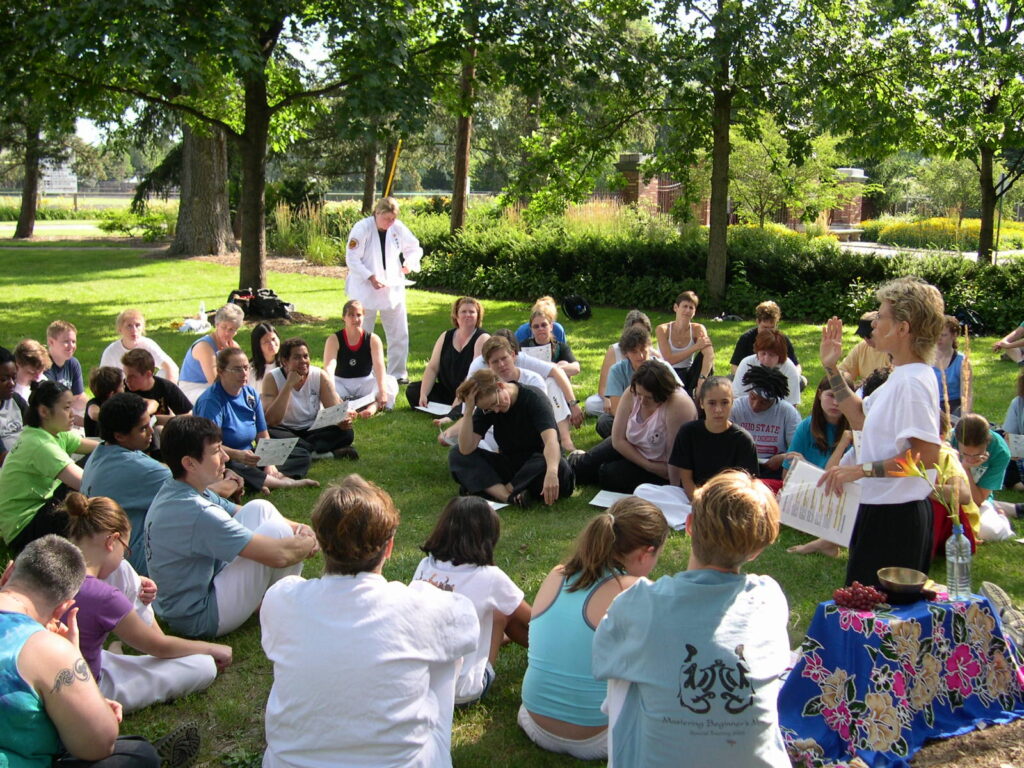
The WLA’s collection has two boxes of T-shirts that were produced between 1979 to 2005 primarily for these Special Trainings. These shirts may not be as glamorous as something like a vintage gown, but they are just as capable of telling compelling narratives about the mission of the organization, the evolution of design, and the importance of community.
The earliest shirt in this collection is from 1979, and looks like the design, which could be a lioness in the savannah, was hand painted. From the very start, the design and look of the shirts was not an afterthought.
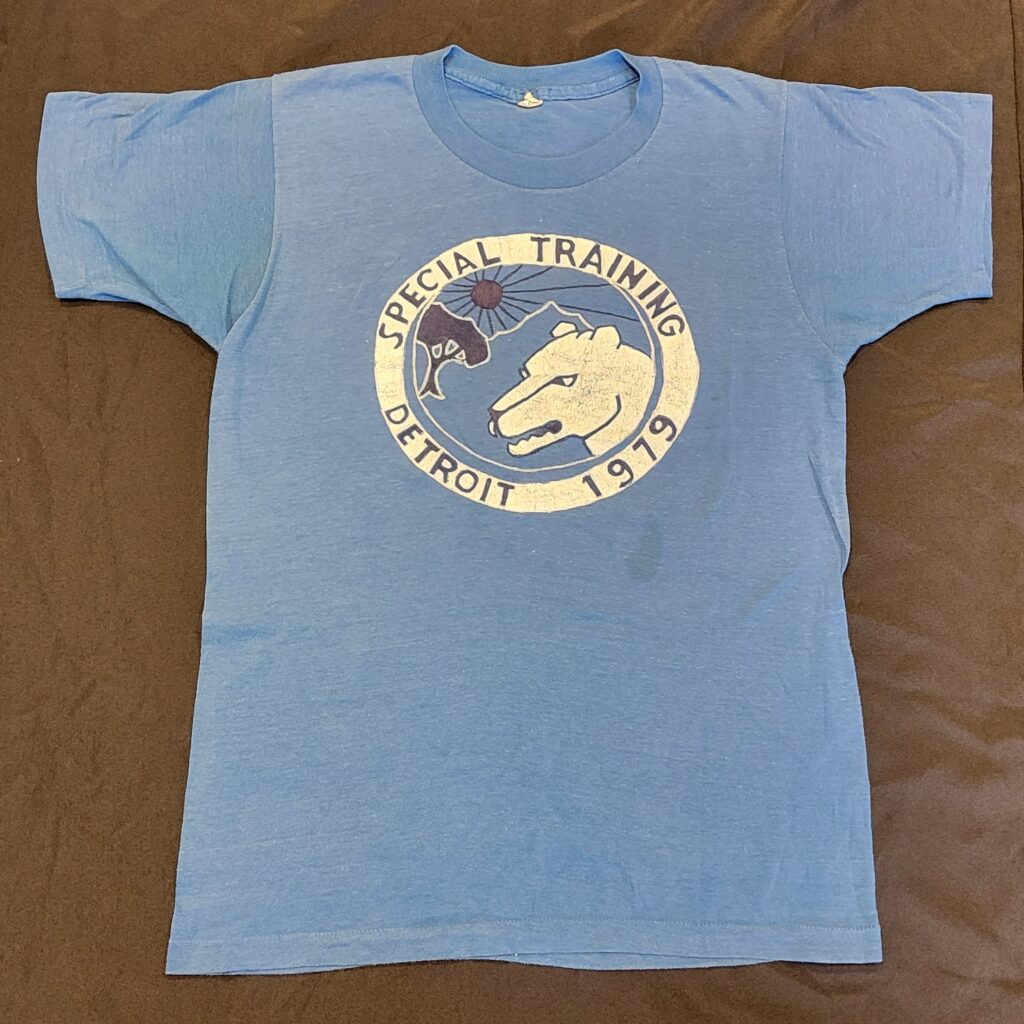

In the years following this 1979 shirt, you can see a variety of interesting designs in various styles with different cultural influences and themes. Some feature clear figures of women and others are very abstract. It’s hard to say what some of these symbols mean exactly, but I would love to have some insight into the design process for some of these shirts.
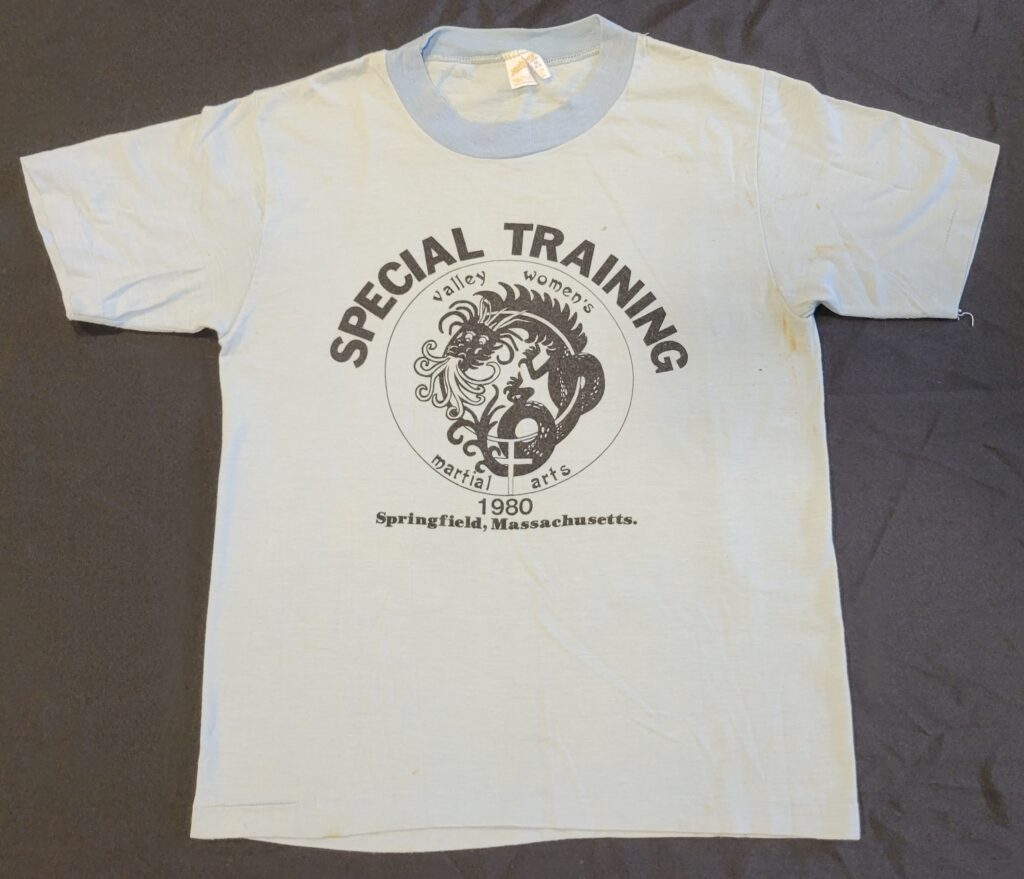
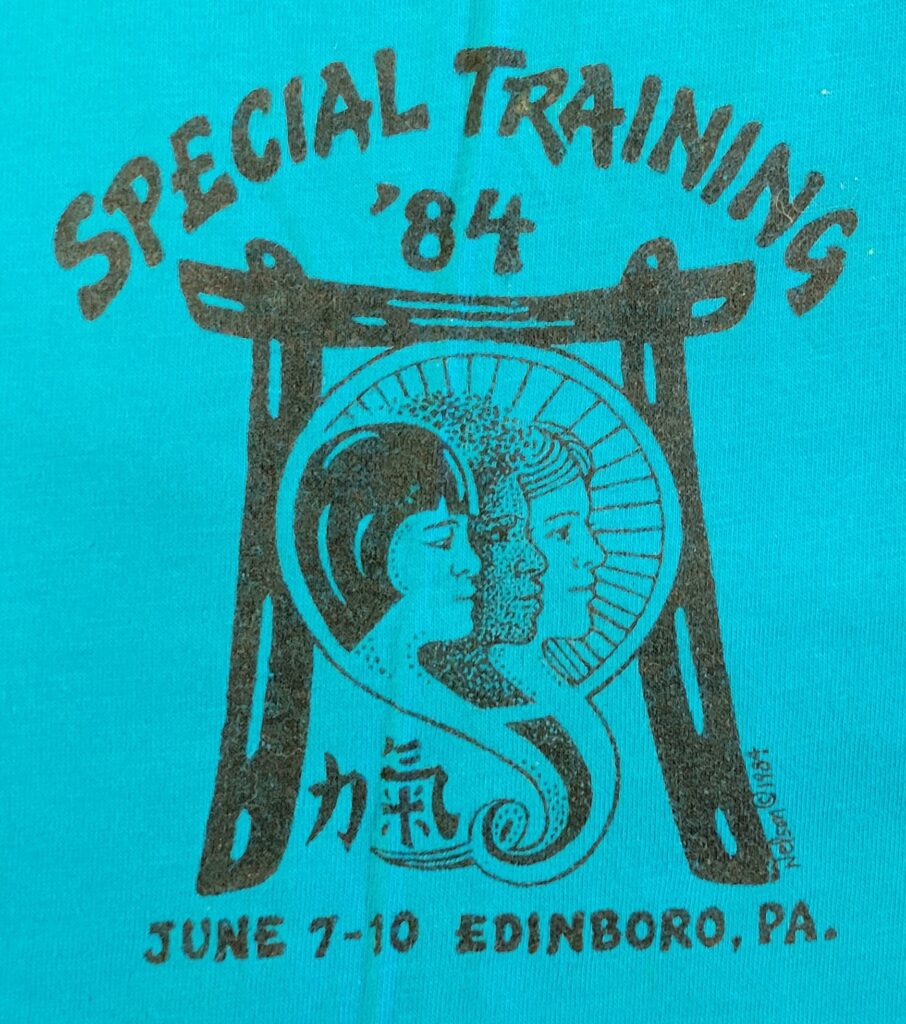
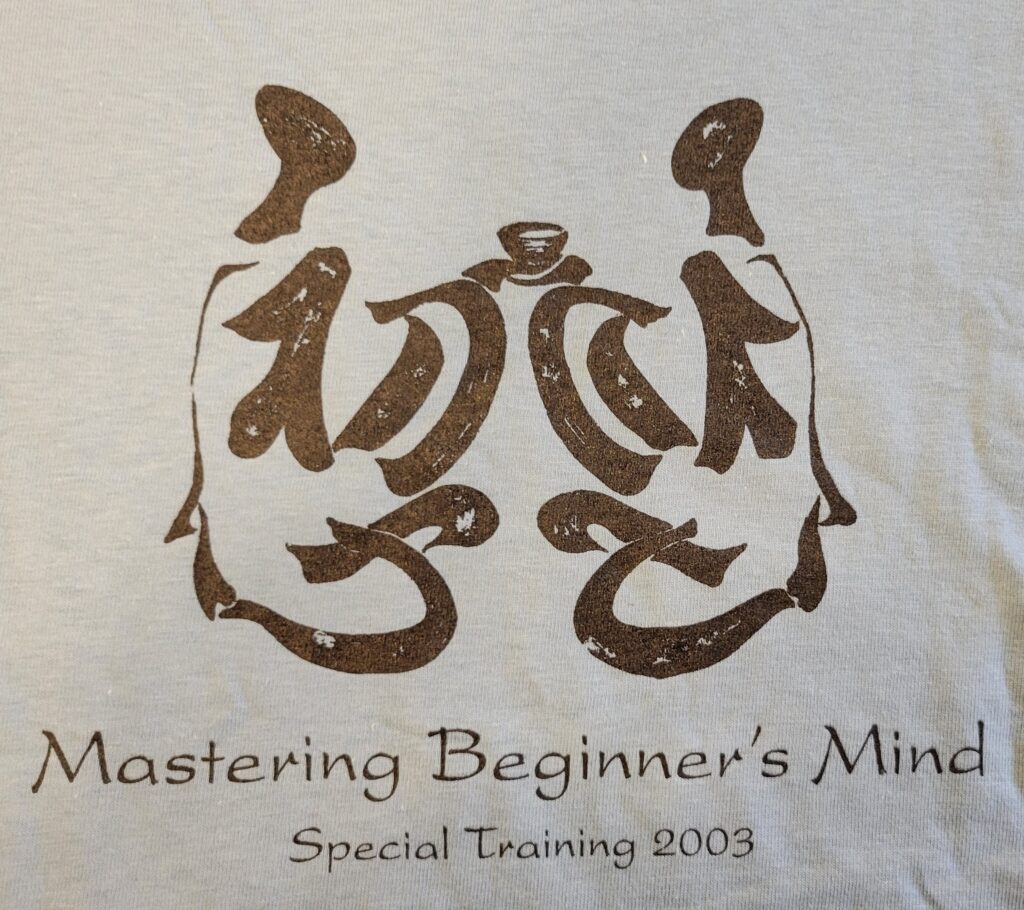
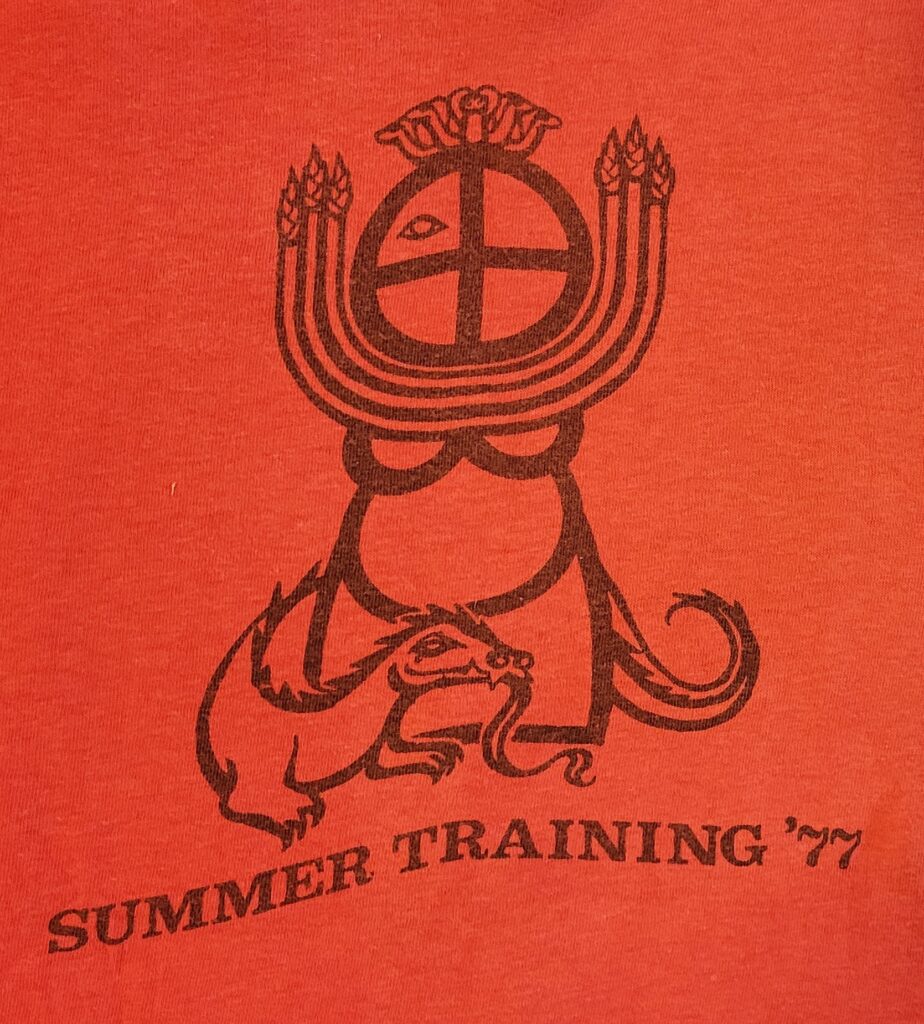
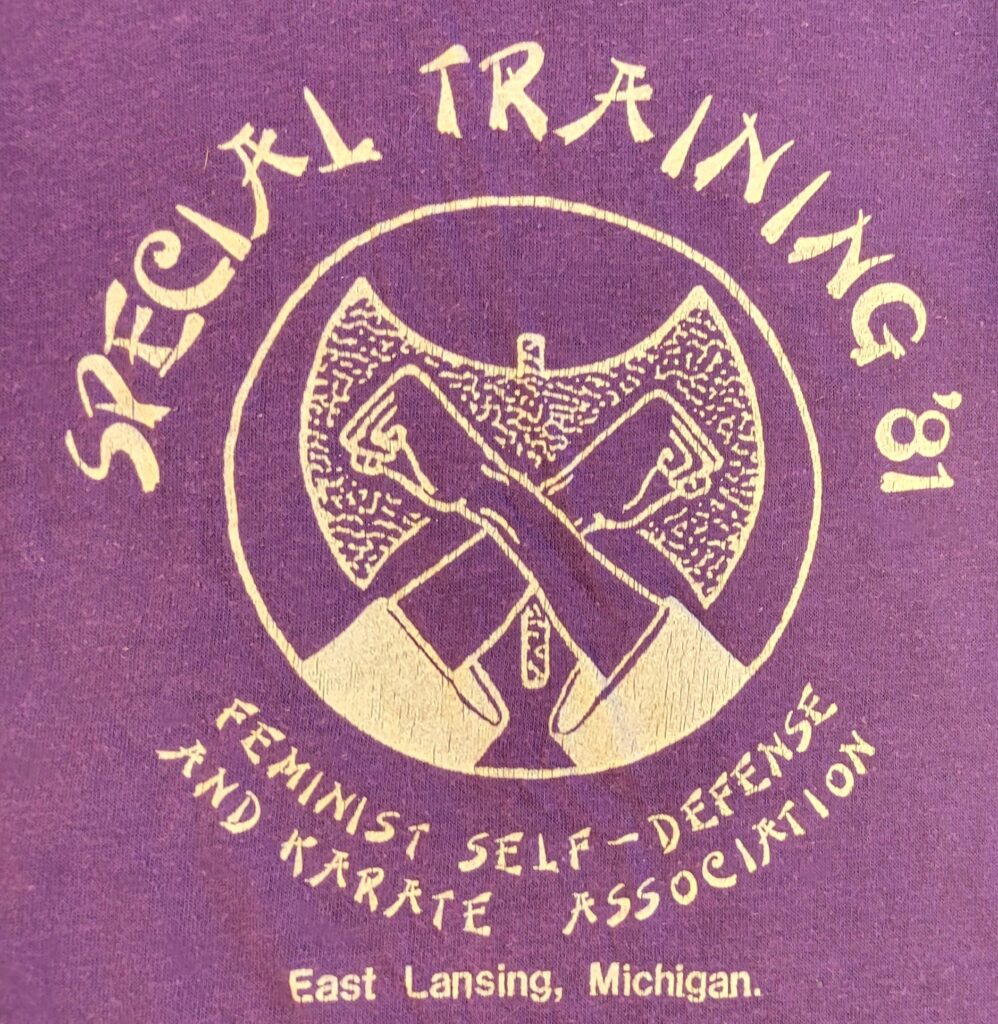
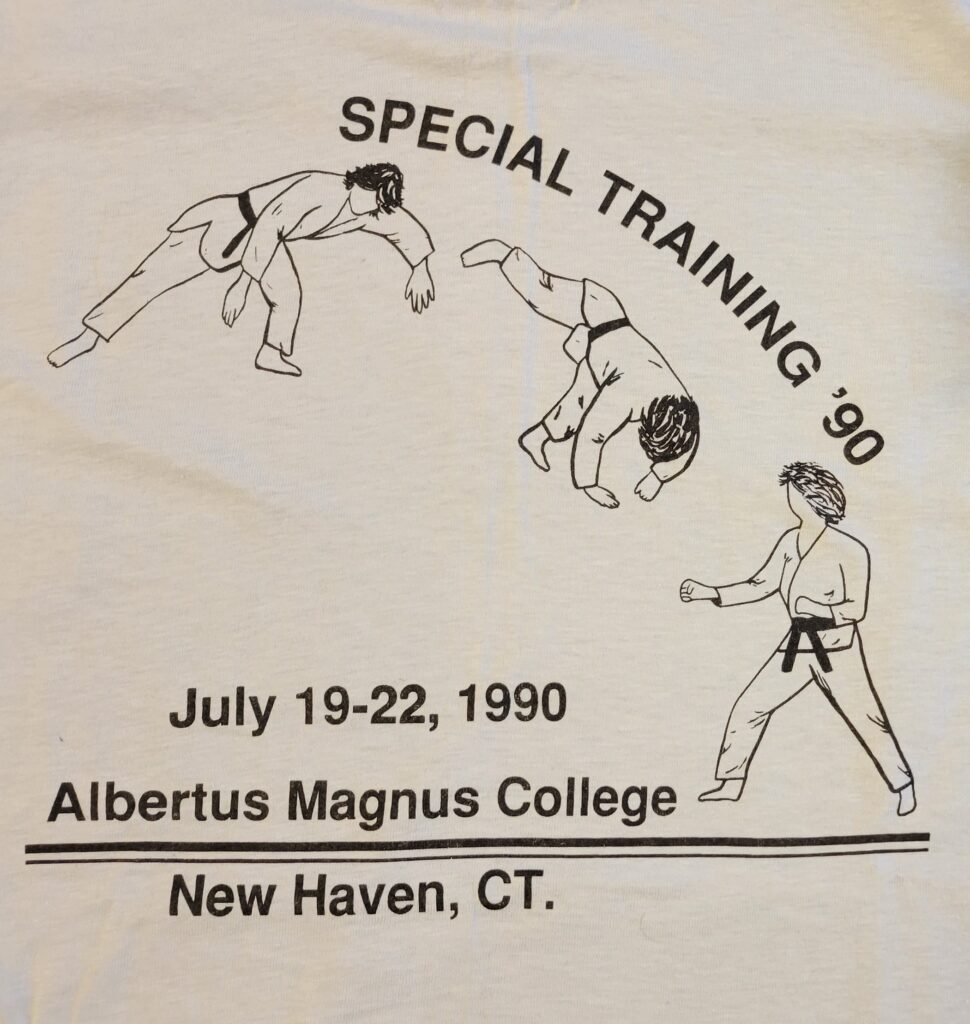
Figure 7: Pale blue 1980 Special Training T-Shirt has the design of a dragon coiled around a female gender symbol. The text reads “Valley Women’s martial arts Special Training 1980 Springfield, Massachusetts”.
Figure 8: The design on this neon blue 1984 Special Training T-Shirt shows the profile of three racially diverse women inside a symbol with Chinese characters just below, all surrounded by a torii gate. The text on this shirt reads ‘Special Training ‘84 June 7-10 Edinboro, Pa. Nelson © 1984’
Figure 9: Light blue 2003 Special Training T-Shirt shows two symmetrical abstract figures, resembling Chinese calligraphy, sharing a cup of tea. The text reads “Mastering Beginner’s Mind Special Training 2003”.
Figure 10: Red 1977 Summer Training T-Shirt features an abstract design of a female figure. The figure’s head is a cross inside of a circle with an eye in the top left quadrant. On its head is a crown of cobras. Framing the head are curved u-shaped stalks of wheat. A stylized lizard coils around the base of the figure. The text reads “Summer Training ‘77”.
Figure 11: Purple 1981 Special Training V-neck T-Shirt. This shirt’s design shows two fists maxing an ‘x’ in front of a two-sided axe. The text that surrounds the design reads “Special Training ‘81 Feminist Self-Defense and Karate Association East Lansing Michigan”.
Figure 12: The back of 1990 Special Training T-Shirt. The design shows three black and white illustrations of a woman wearing a Gi in different poses. The text reads “Special Training ‘90 July 19-22, 1990 Albertus Magnus College New Haven, CT.“
My second favorite shirt in this collection is this anime inspired one created for the 2001 Special Training. It really stands out from all of the other tees with its colors and distinct style.
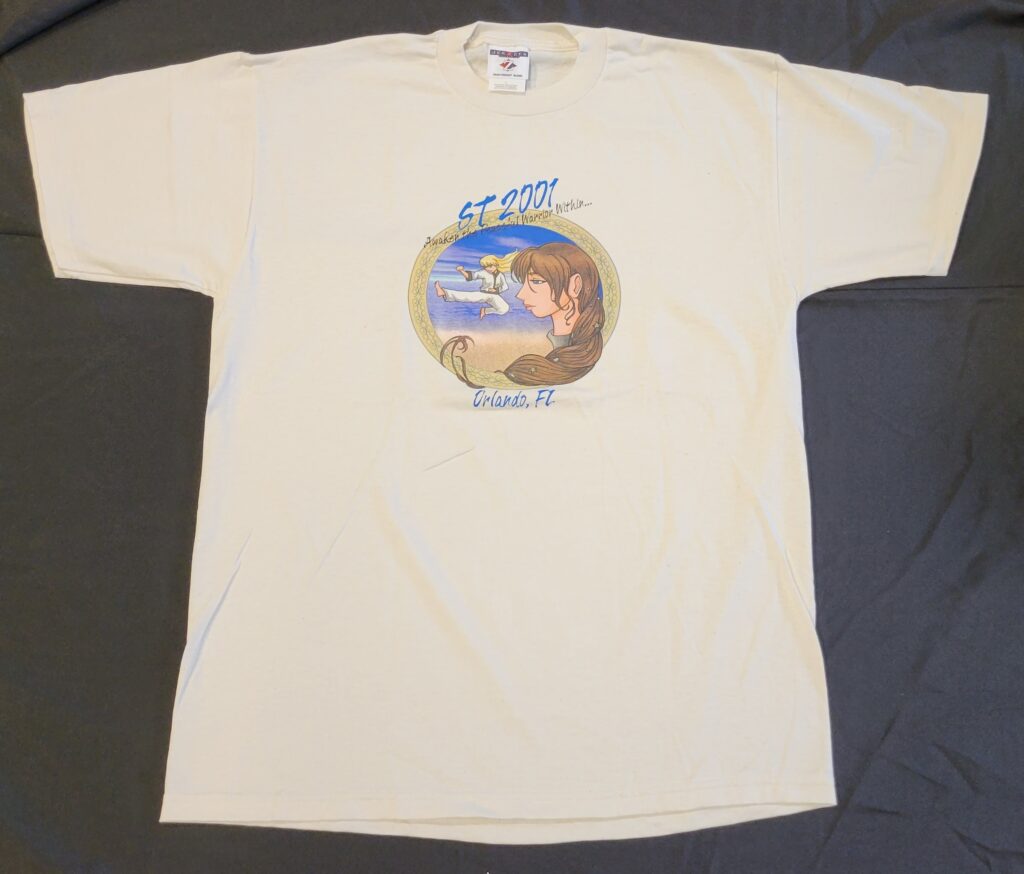
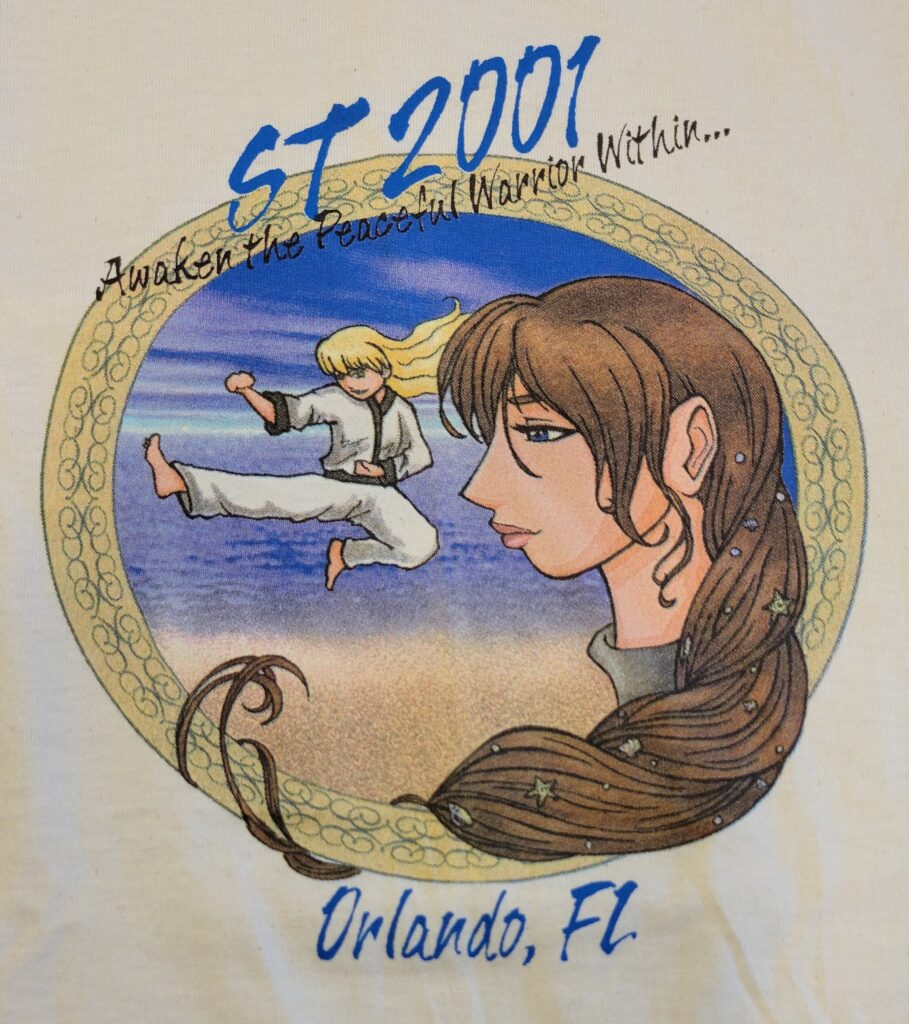
Some shirts have simpler, more straightforward designs. These shirts get the job done as memorabilia and to promote the Special Trainings, but they don’t tell us very much about the organization and its goals.
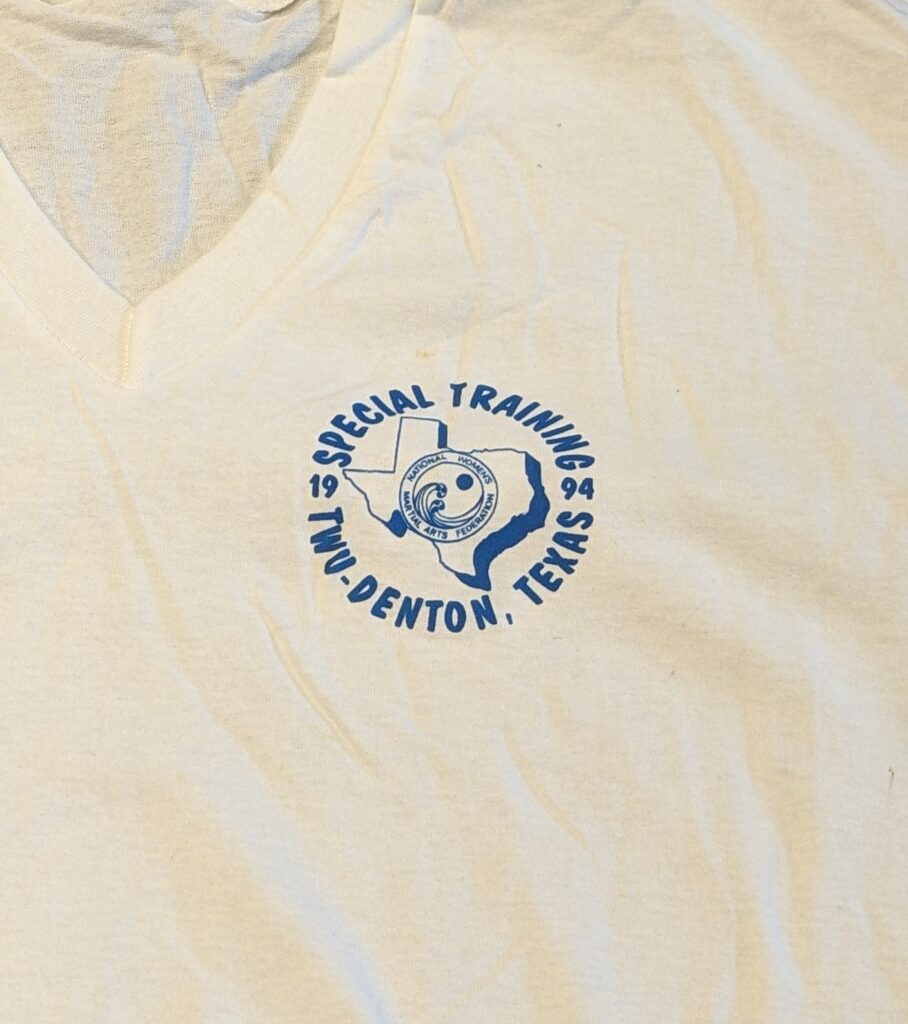
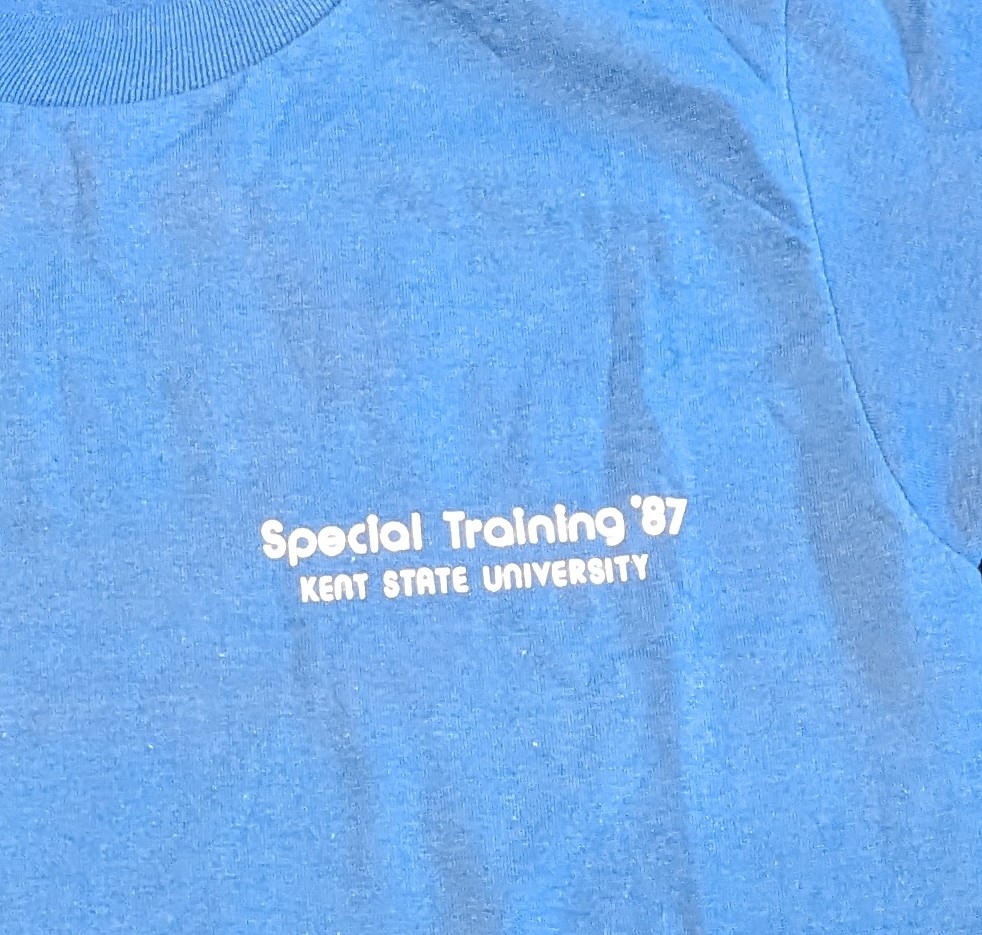
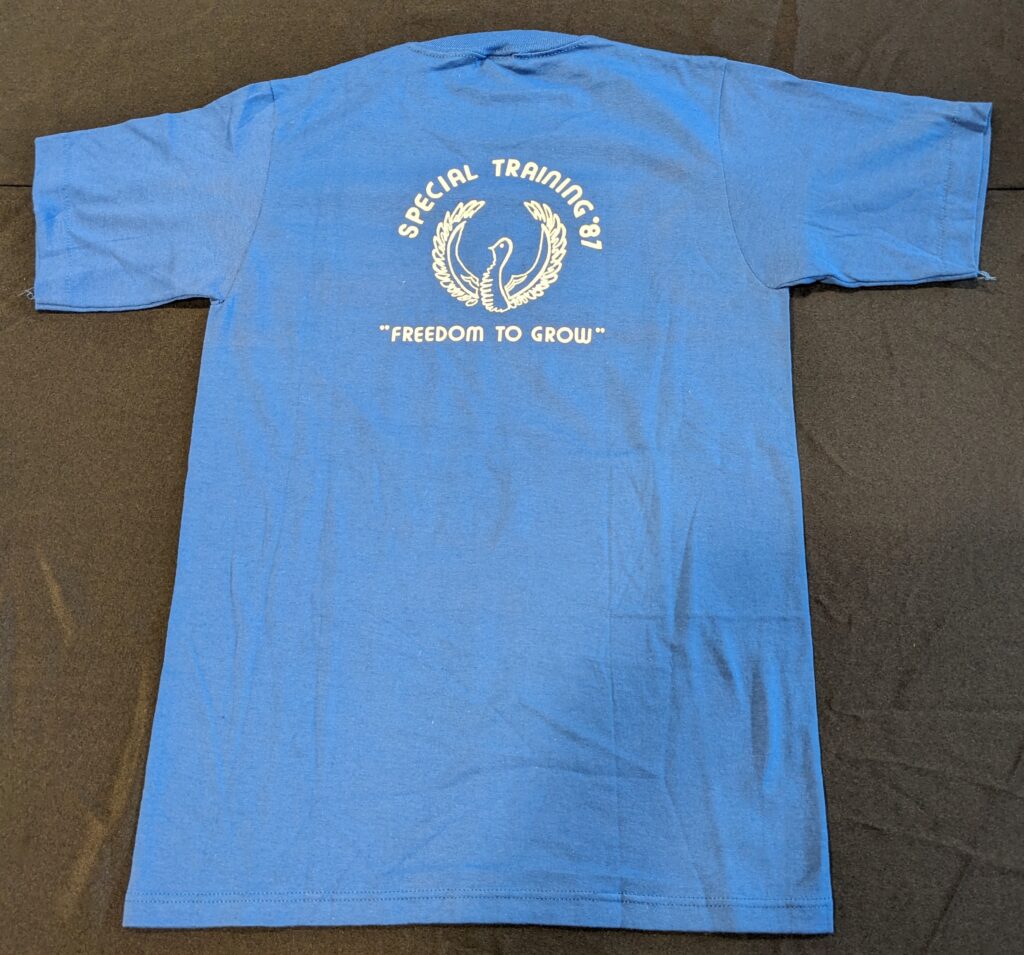
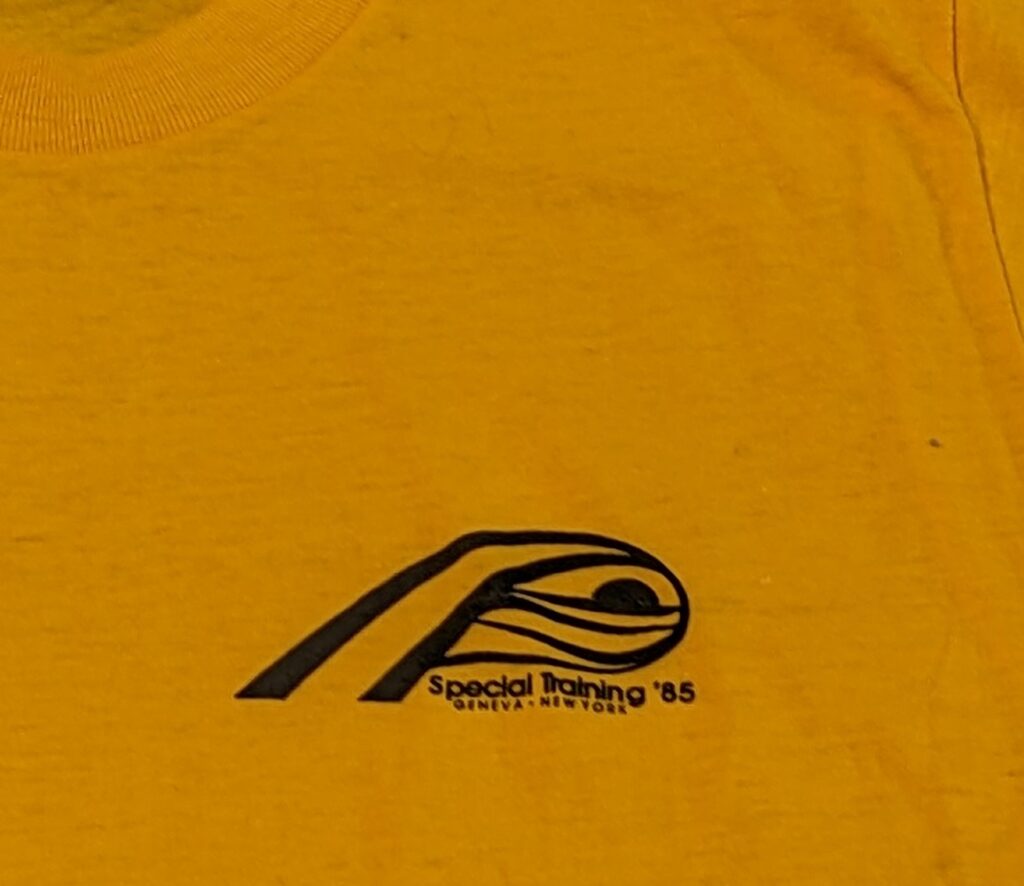
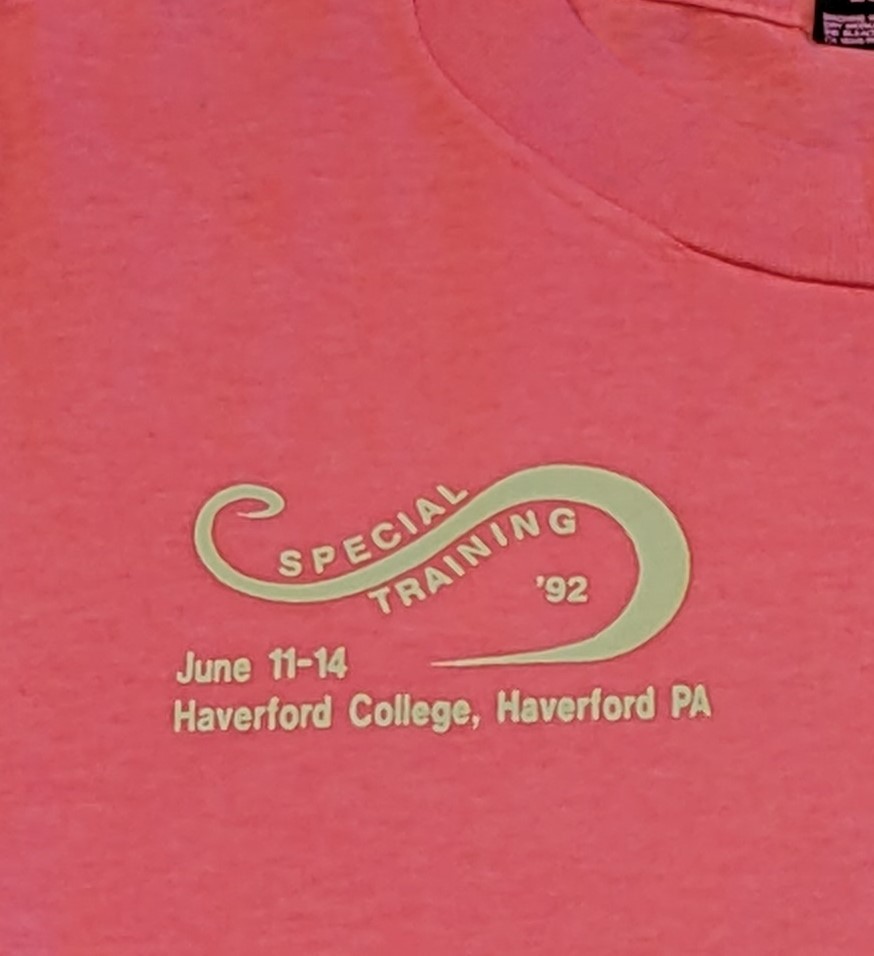
Figure 15: White 1994 Special Training V-neck T-Shirt. The design is an illustration of the state of Texas with the NWMAF logo inside. The text “Special Training 1994 TWU-Denton, Texas” surrounds the illustration
Figure 16: Front of Blue 1987 Special Training T-Shirt. The text reads “Special Training ‘87 Kent State University”.
Figure 17: Back of Blue 1987 Special Training T-Shirt. The design shows a bird with spread wings. The text reads “Special Training ‘87 Freedom to Grow”.
Figure 18: Yellow 1985 Special Training T-Shirt features an abstract design that resembles a sun setting or rising over water. The text on this shirt reads “Special Training ‘85 Geneva. New York”.
Figure 19: Neon pink 1992 Special Training Shirt features a simple swirl design through the text that reads “Special Training ‘92 June 11-14 Harvard College, Haverford PA“.
Other shirts though, explicitly demonstrate the mission of the NWMAF.
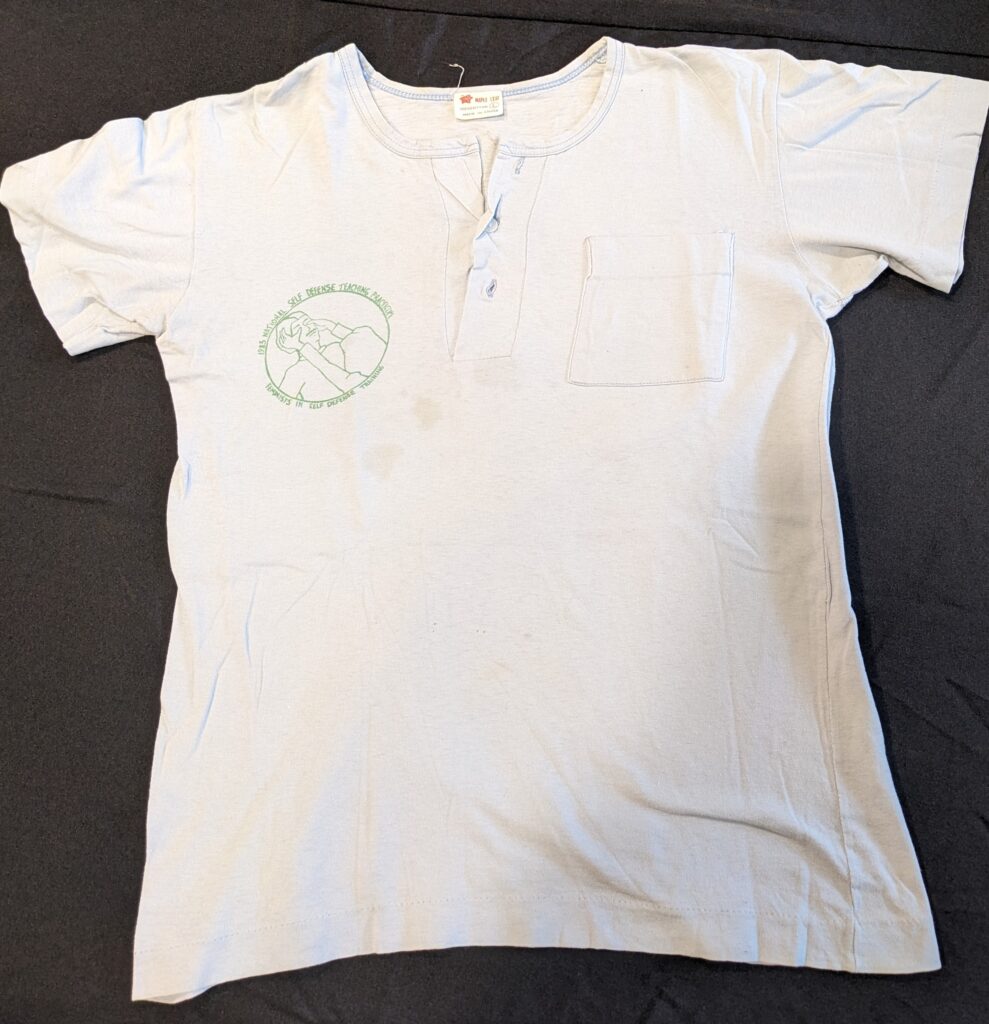
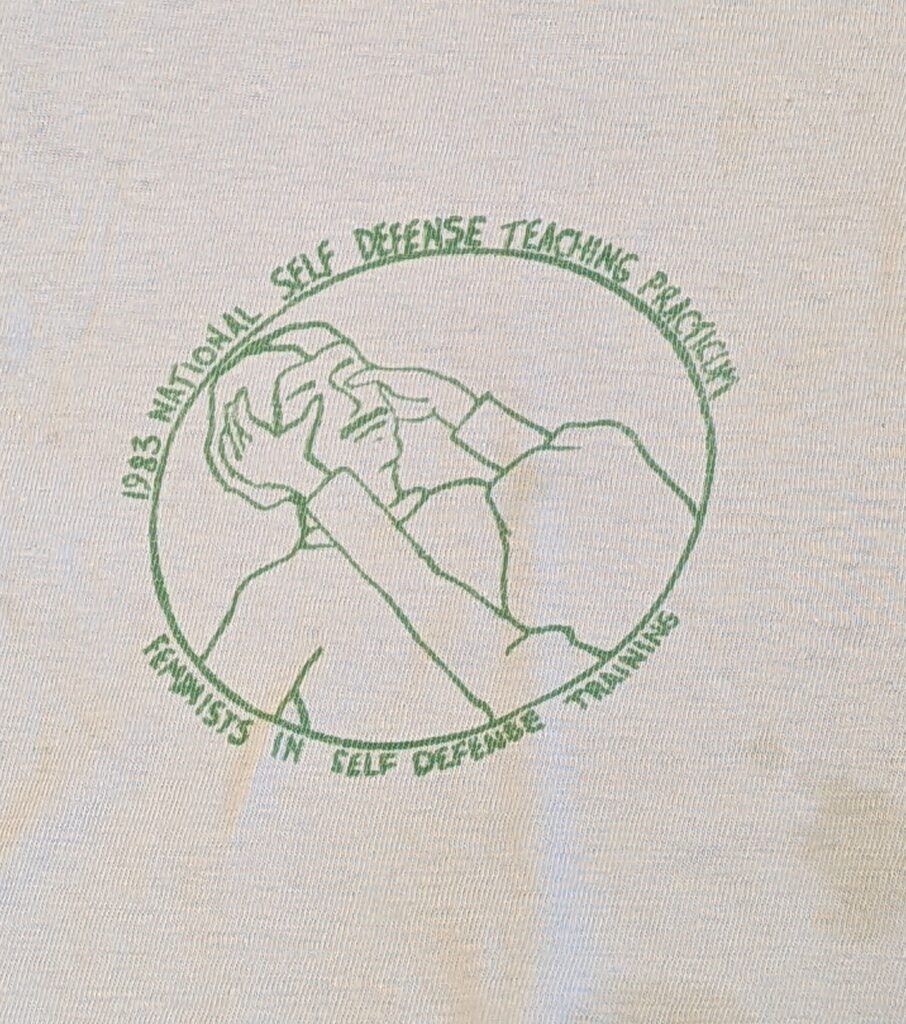
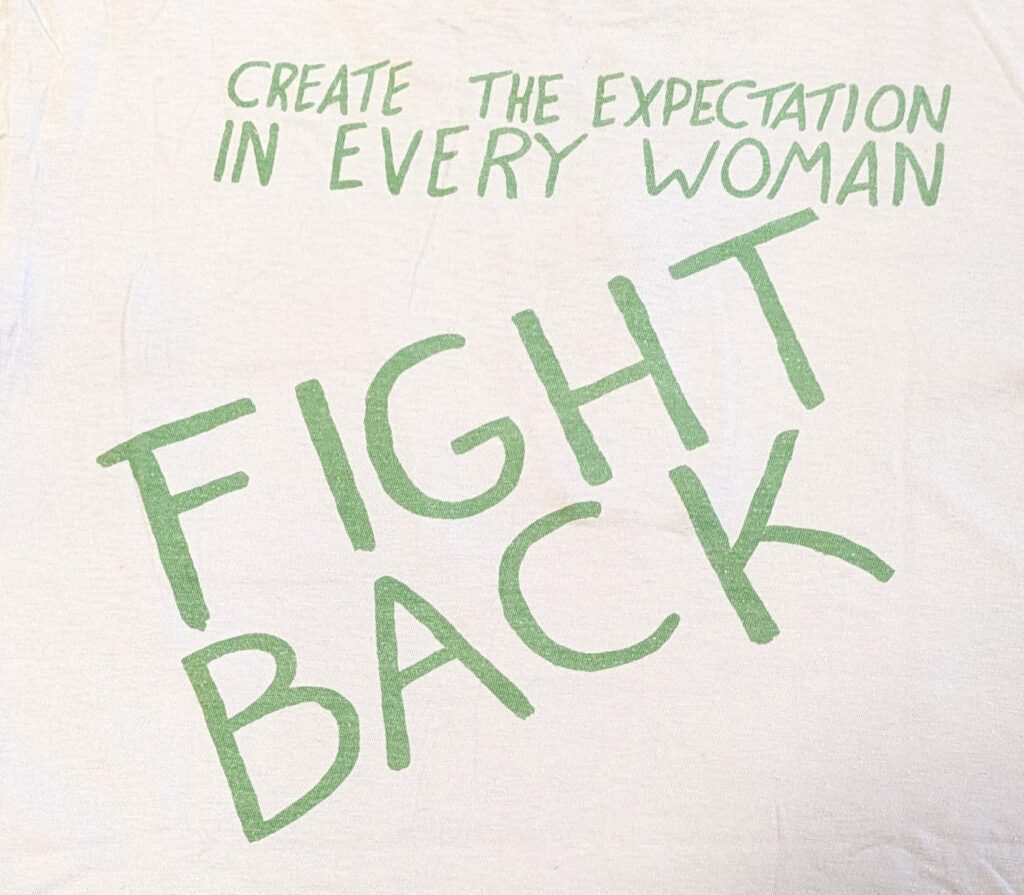
This very direct shirt, though not from a Special Training, shows the NWMAF’s goal of ensuring that women can defend themselves. I can imagine that this shirt could have also acted as a bit of a deterrent to those looking to cause harm to women. I like that the shirt specifically says “create the expectation” that every woman can and will fight back. This acknowledges that not every woman can or will learn self-defense tactics, but the chance that any given woman on the street will be able to fight back, can be a deterrent to those looking to cause harm.
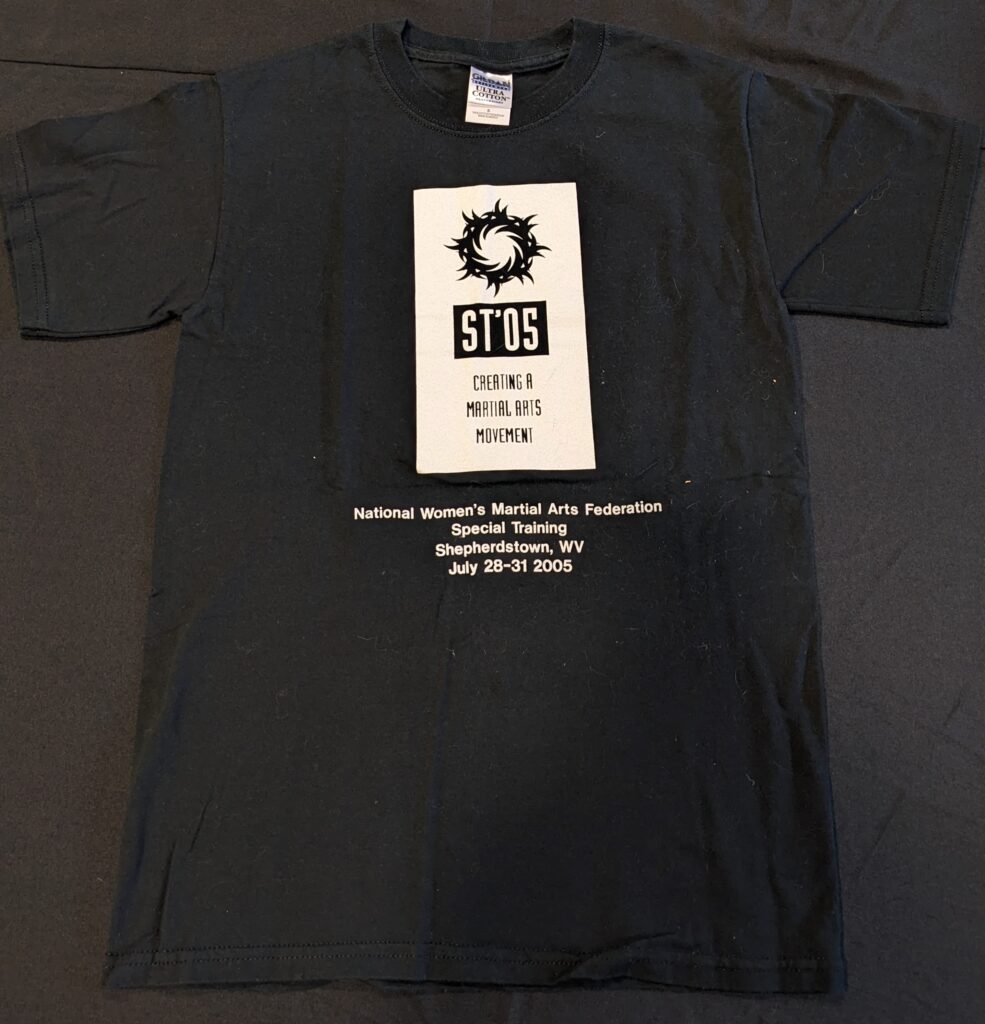
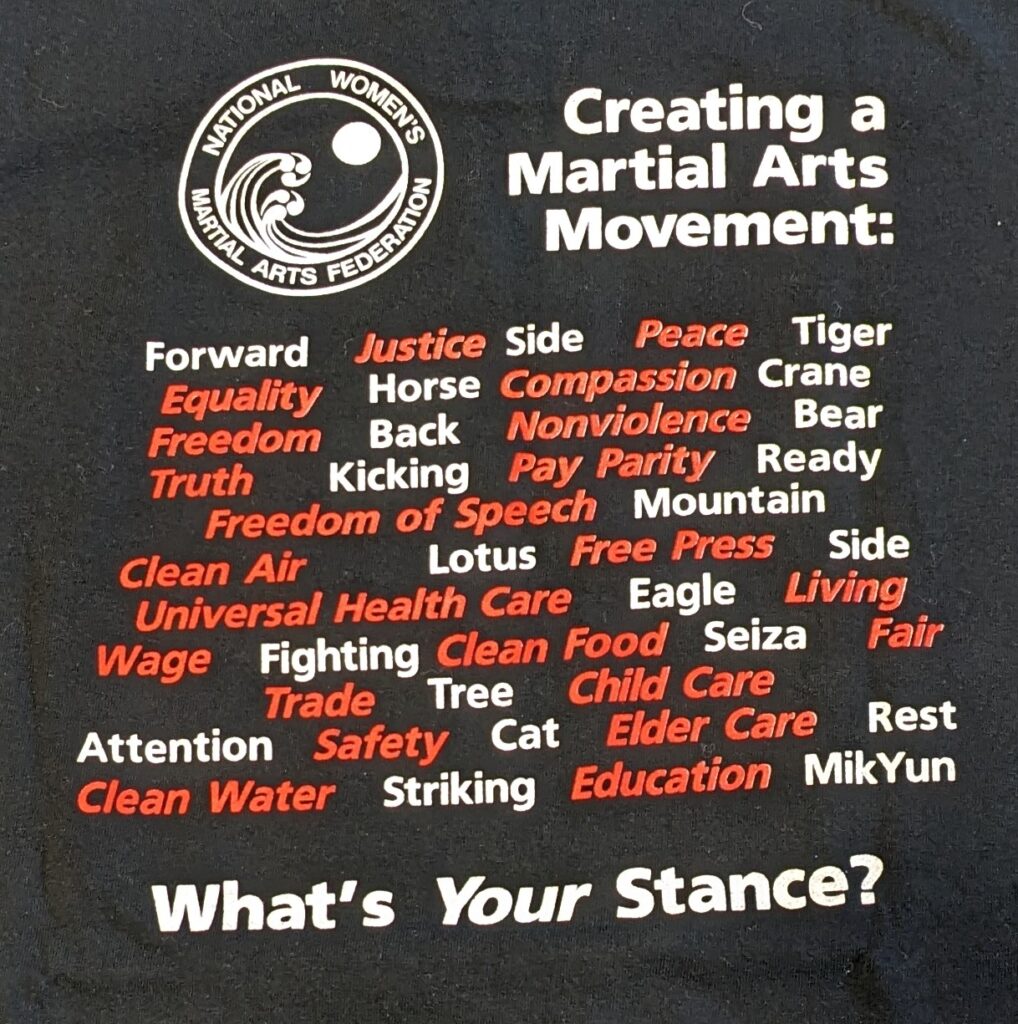
This shirt speaks to the kind of martial arts movement that the organization set out to create. There are a lot of intersecting ideas here that don’t just focus on martial arts specifically, like education, clean water, and universal healthcare. This shows how the NWMAF wanted a better world holistically, and that creating spaces that empower women in martial arts is just one part of that larger vision.
Out of all of the shirts in this collection, I think the following one does the best job conveying the mission and vision of the NWMAF in the most visually interesting way.
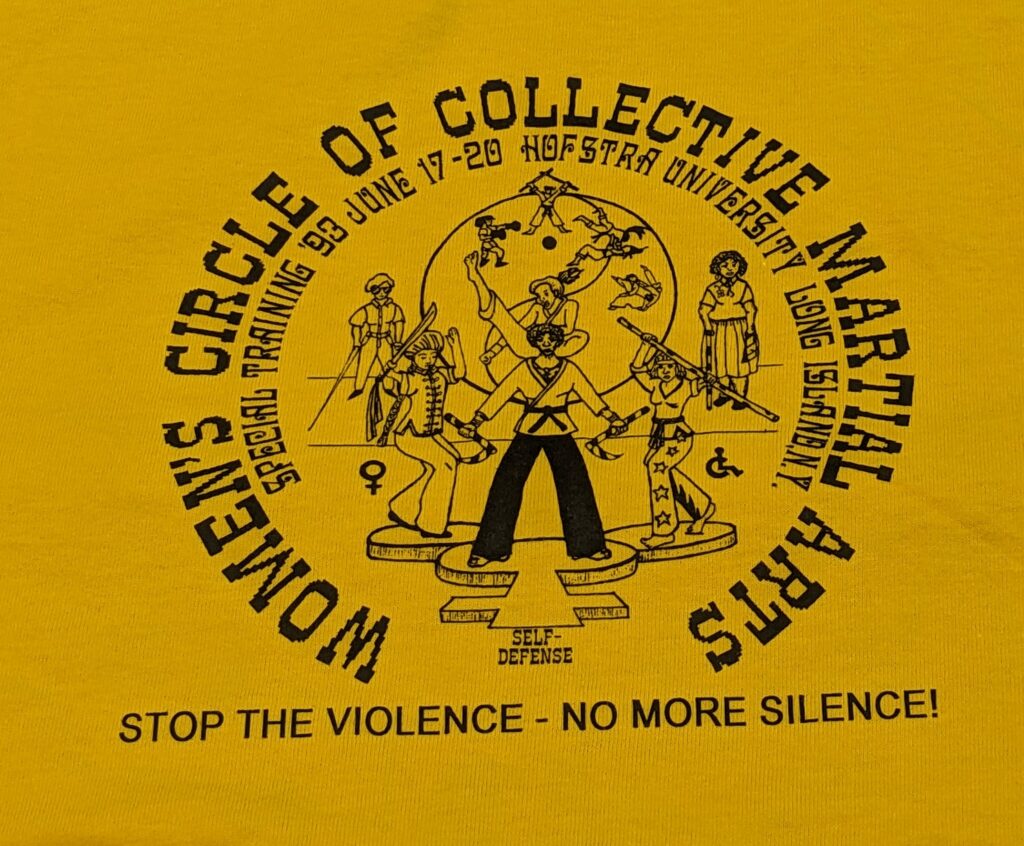
The black on yellow combined with the powerful composition is striking and direct. The diversity in race, ability, age, culture, and martial arts style present is an excellent vision into the world that the NWMAF wanted to create: a world where all women are safe from violence. I love the inclusion of the two women on either side of the Yin-yang symbol who are clearly not martial artists. Kind of like the blue ‘fight back’ shirt, this shows how women who are not directly involved in the trainings are still part of the vision for this organization, and that this work will benefit all women. This is my absolute favorite shirt I’ve seen in this collection. If I were thrifting and I came across this shirt, I would pick it up in a heartbeat.
Some of these shirts are in pristine condition, likely leftovers that were never purchased by members, but many of them are stained, damaged, or faded from regular wear and tear. You can see how well worn, full of memories, and loved these shirts were.
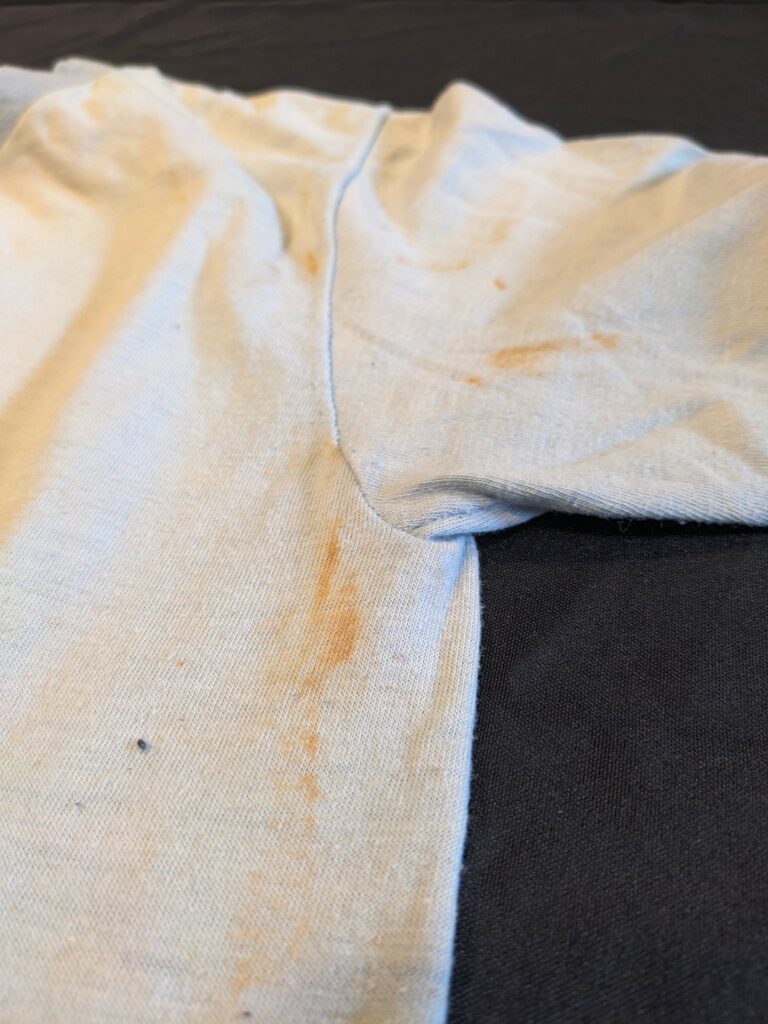
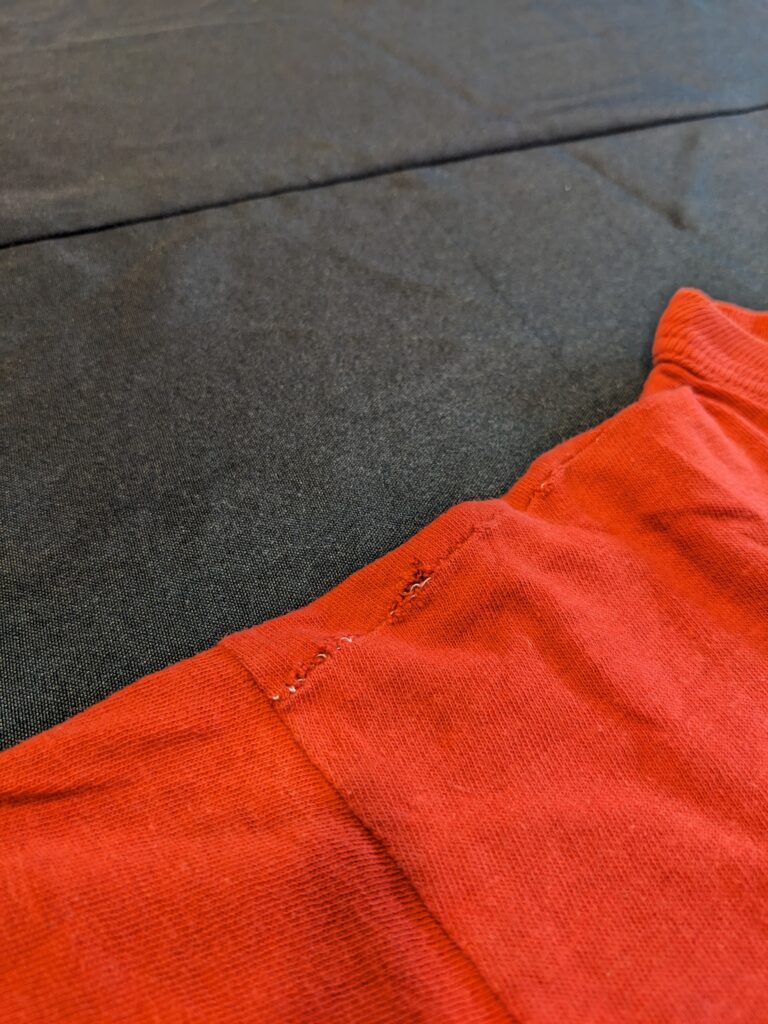
Figure 26: Close up of staining on 1980 Special Training T-Shirt.
Figure 27: Close up of damage on 1977 Summer Training T-Shirt.
Seeing these shirts in this condition makes me think of all the nostalgia-laden T-shirts I’ve collected over the years from summer camps, school activities, family reunions, and community events. Those shirts mean a lot to me, and working with this collection has made me think about how they could have a second life in an archive one day. What story would they tell if they were in an archive? What connections would people make to or with them? Would an archivist think that the design on my D.A.R.E. shirt is as cool as I thought it was when I was 11 years old? Who knows for sure, but the idea of that happening kind of warms my heart.
Maybe you’ve got some shirts that carry important memories for you. Do you think you’d ever give them to an archives? Did you know that was a possibility?
Yujay is a second-year student in the Master’s in Library and Information Science MA Public History Dual Degree Program at Loyola University Chicago and Dominican University. She was a graduate assistant at the Women and Leadership Archives 2022-2023 with research interests in post-war American material culture and photography. In her free time, she enjoys cooking, drawing, and collecting vintage postcards and magazines. For more information about this post, contact wlarchives@luc.edu.
Loyola University Chicago’s Women and Leadership Archives Blog is designed to provide a positive environment for the Loyola community to discuss important issues and ideas. Questions? Contact wlarchives@luc.edu.
